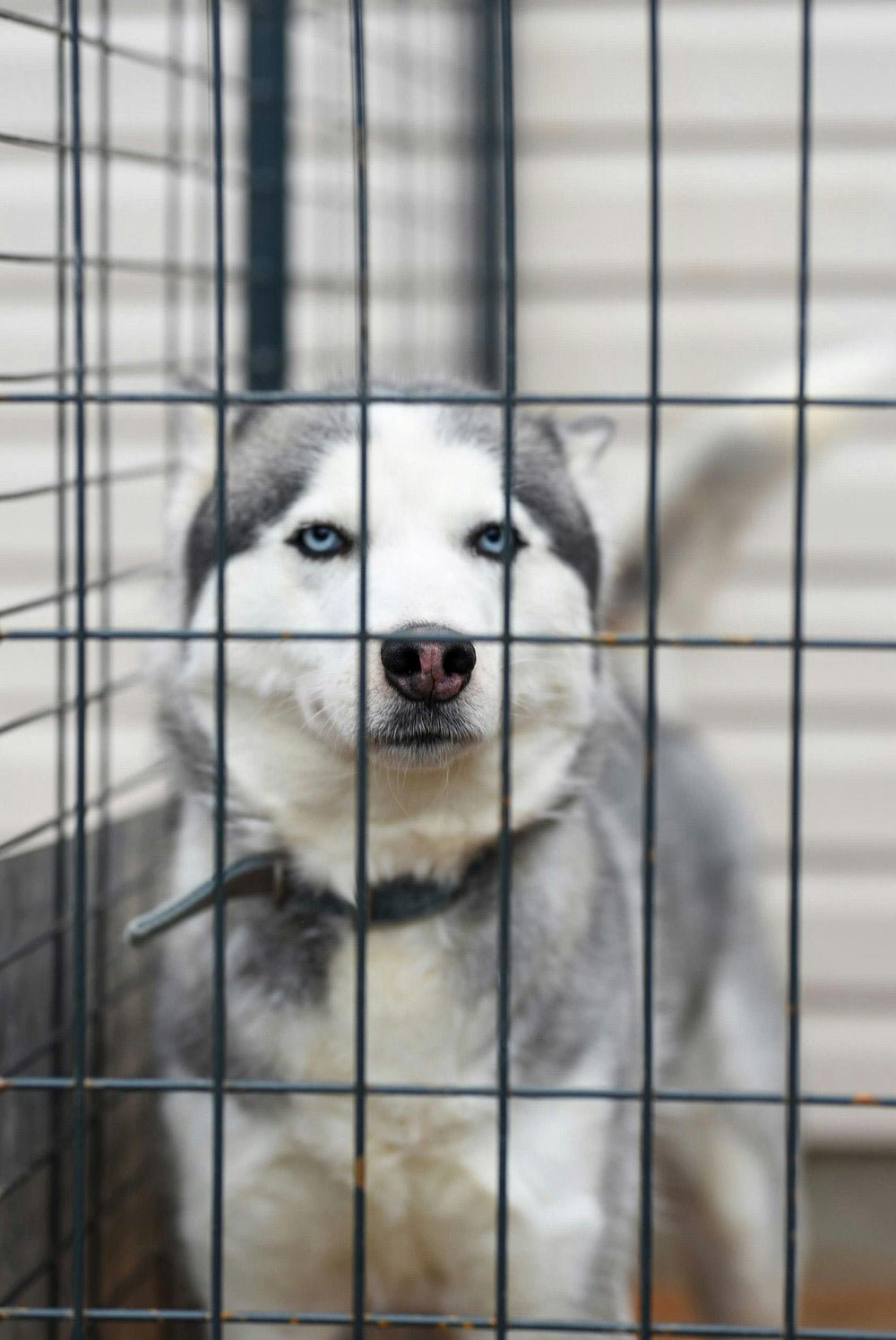Pet stores may look like happy places filled with swelling tails and glass enclosure, but behind these scenes lies a far more worrying reality. The puppies sold in retail stores all over the United States are overwhelmingly derived from commercial breeding operations – better known as puppy mills – where cruelty is business as usual.
These facilities prioritize profits over all aspects of animal welfare and animal stores, consciously or not, keep them alive.
Pet stores are the retail front for the puppy mill industry.
Puppy Mills: A profitable pipeline of pain
Puppy mills act as large -scale high -volume breeding facilities that sell animals as stock. Mother dogs are repeatedly raised without regard to their health. They live enclosed in wire cages, stacked in rows, deprived of training, social interaction and medical treatment. According to the Human Society of the United States, over 500,000 dogs are limited in these breeding foals that produce more than 2.6 million puppies annually.
Most of these animals are never touched by friendly hands. They are denied the basics – a clean space, proper food, even consistent drinking water. When they can no longer produce litter, discard or are they often killed or abandoned. Puppies from these mills may arrive in pet stores that occur healthy but many carry hidden diseases, genetic defects or serious behavioral problems due to stress and early maternal separation, reports paws.

Most puppies sold in stores come from inhumane commercial breeders.
The connection of pet shops
Almost every animal store that sells puppies sources them from mills. Despite the comforting language of “USDA-Inspiced Breeders”, this term is meaningless in practice. The USDA rules require only the most minimal survival conditions. Many licensed mills are repeatedly cited for violations and continue to operate, according to data reviewed by ASPCA. By 2024, only two dog dealers lost their licenses, while not a single dog was removed from a facility.
Companies like Petland – still the largest national chain selling puppies – are directly tied to this industry. The effort to push Petland to go human is about to mount, but the public’s attention is left behind. Retailers insist that they work with reputable breeders, yet rarely inspect facilities or provide transparency to customers.

Online puppy sales are almost impossible to regulate.
Internet: a loophole for cruelty
Even when dozens of cities and states prohibit retail whale, a large unregulated marketplace online thrives. Puppy Mill operators are utilizing sites, classified and social media ads to reach buyers directly. Slick photos and emotionally manipulative descriptions hide gloomy realities. Puppies are sent over state lines sight unseen, leaving customers vulnerable to fraud and heartache.
As best Friends Animal Society maintains, this remote transaction model removes all responsibility. Buyers do not meet the puppy’s parents, see the living conditions or receive reliable medical documentation. Many people discover too late that their new puppy is chronically ill or psychologically traumatized.
How it affects dogs – and humans
In addition to suffering, mill -born puppies often develop chronic health problems: respiratory disease, heart disease, joint disorders or parasitic infections. Emotionally, they can exhibit extreme anxiety, aggression or shutdown behavior. These problems may require years of education or medical treatment. Some families surrender their dogs when costs or challenges become too high, adding to the shelter’s population problem.
The ripel effect is staggering. Each purchased puppy denies a shelter dog a home. And each sale finances the continued abuse of the dog’s parents, caught in breeding cages.
https://www.youtube.com/watch?v=pyrhb-bwehk
Adoption and advocacy is the way forward
The most effective way to fight puppy mills is to starve them by demand. It begins with each of us choosing adoption rather than purchase. Recognized shelters and rescue groups have dogs of any age and breeding, many already housed and eager for homes. Adoption of rescue life and it sends a clear message: cruelty has no market here. Legislation also plays a key role. Some states – such as California, Illinois and New York – have passed the sale of pet slab for the sale of pets, and disrupts puppy mill supply chain significantly. But federal enforcement is still limp.
Lawyers are calling on the USDA to raise its standards and actually enforce existing laws, which would help protect thousands of dogs currently suffering in licensed facilities.
What you can do
- Never buy a puppy from an animal store or online list.
- Educate friends and family about the puppy mill connection.
- Reports suspicious breeders or retailers to local authorities or animal protection groups.
- Calls for Congress and USDA to strengthen breeding regulations and close inspection loopholes.
Most importantly, choose compassion. When you adopt a dog you don’t just change a life. You help dismantle an industry built on exploitation.
Click below to make a difference.
